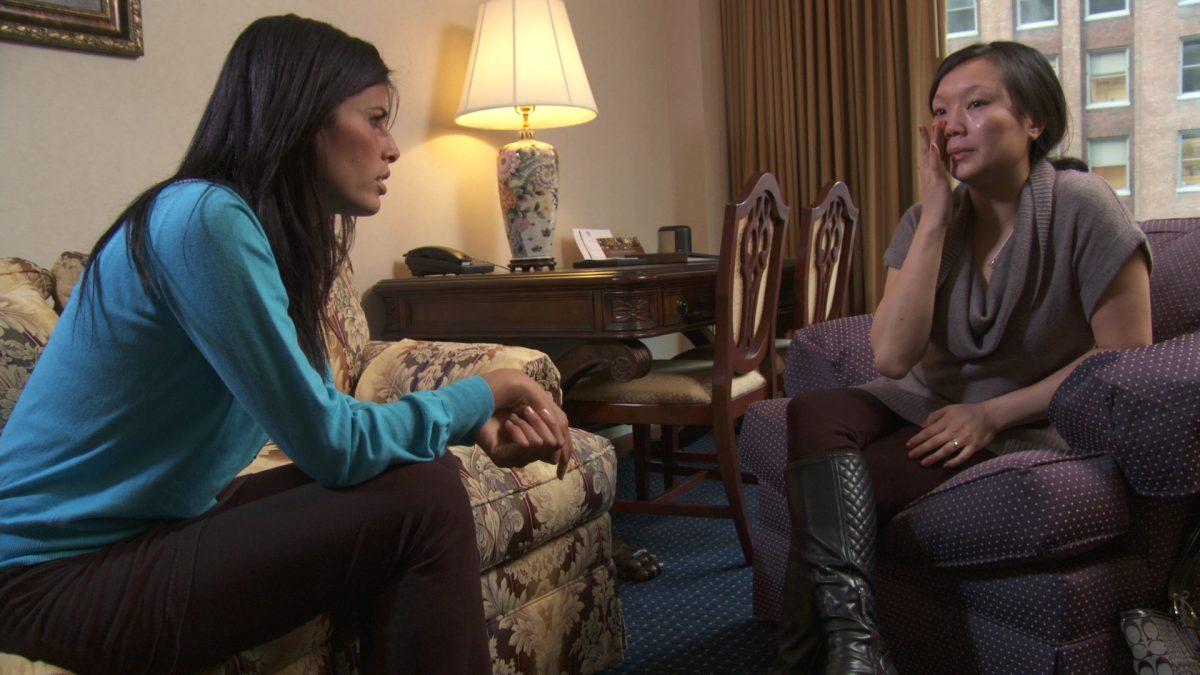Just six weeks before claiming the title of 1998 Miss World, Linor Abargil, formerly Miss Israel, was abducted and raped in Milan, Italy. She was just 18 years old. “Brave Miss World,” directed by Cecilia Peck, presents Abargil’s inspiring journey from rape victim to activist. Set over a period of four years, the documentary follows Abargil as she works to empower victims of sexual assault and destigmatize rape. “Brave Miss World” was nominated for an Emmy and has been shown in numerous venues around the world since it was released in 2013, including here at Wellesley, where it was screened last Thursday.
In October of 1998, Abargil was abducted, stabbed and raped by her travel agent, Uri Schlomo Nur. She managed to escape after promising not to report the attack and fled to Rome. Once there, she immediately contacted the police. Later, Abargil disclosed the rape to authorities in Israel as well.
Although Abargil refused to keep quiet, most sexual assault victims remain silent and are scared to confront authorities, friends and even family members. She received immense support from her family and found comfort in the Jewish faith. However, victims are often stigmatized instead of supported. “Brave Miss World” has acted as a focal point for other victims to find their voices and become empowered survivors.
Abargil currently travels around the world sharing her story to raise public awareness and encourage survivors and their families to speak out against sexual assault. The film follows Abargil on her journey to several countries, including South Africa, which the UN considers the “rape capital of the world.” According to BBC, in South Africa, a child is raped every three minutes and a woman is more likely to be raped than learn how to read. Abargil travels to the Teddy Bear Clinic, established in Johannesburg in 1986 to provide resources and support for abused children, to meet with victims of sexual assault. Many of these young girls were raped by family members or friends. Abargil also meets with South African mothers who ask, “How can I protect my daughter when I couldn’t protect myself?”
Despite the confidence and strength that Abargil displays when travelling, she suffers from PTSD and hearing stories of sexual assault is challenging for her. “It’s one of the hardest things I ever did in my life,” she admits at one point. “A lot of the time I didn’t have anything to say to the things that I heard.” However, Abargil also finds healing in helping others and feels that as a public figure she has a responsibility to help break the stigma around rape. Her work with victims gives a whole new dimension of meaning to her Miss World crown.
Sexual violence is a public health crisis. According to the World Health Organization, approximately one in five women worldwide have been victims of rape, and one in three have experienced physical or sexual violence. Additionally, it is predicted that 61 percent of rape cases in the United States go unreported. Abargil acknowledges the importance of discussing the presence of sexual assault on college campuses, where only an estimated 12 percent of sexual assault crimes are reported to authorities. This underreporting is partly caused by the tendency of many universities to place school reputation over justice and student safety.
What about sexual assault at Wellesley? The majority of students at Wellesley feel physically safe on campus, and the environment created by a women’s college helps decrease instances of sexual assault. Wellesley administered its first survey on sexual misconduct in May of 2015. This survey showed that one in seven Wellesley students has reported being sexually assaulted. Although below the national average, 14 percent of students is a considerable amount.
Wellesley has several organizations dedicated to educating students about sexual assault, such as SAAFE (Sexual Assault Awareness For Everyone). In addition to student groups, there are many other resources available on campus, such as the Stone Center Counseling Service, Health Services, Campus Police or Wellesley’s Title IX Coordinator.
For those interested in learning more about Abargil’s story, “Brave Miss World” is available for streaming on Netflix.
Photo courtesy of Guy Kushi & Yariv Fein



